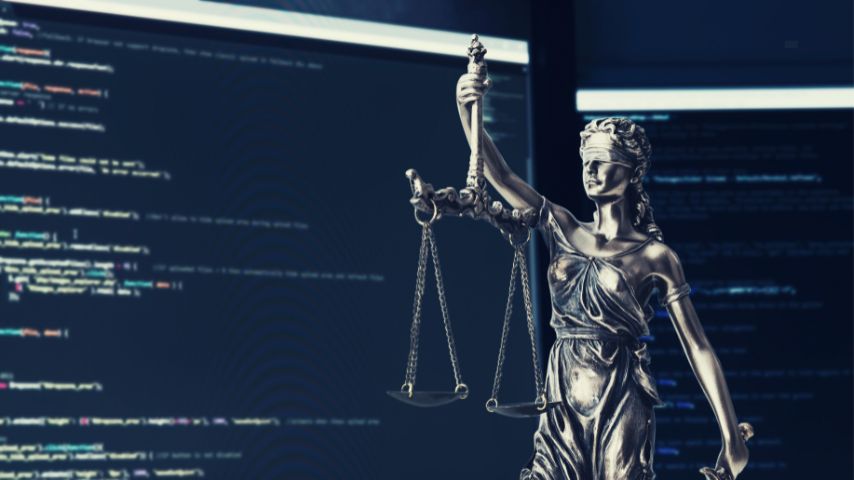In the last few years, technology has become an inevitable part of our lives. It is practically influencing every aspect of our hectic daily life and the legal profession is no exception. The legal sector is predicated on past and precedent, it has not altered very much over thousands of years. However, the exponential expansion of technology throughout the past few years has altered the training and working practices of lawyers. From courtrooms to law schools, technology is altering the legal profession in hitherto unthinkable ways.
Though some argue it has more fundamentally affected the way lawyers work, technology has revolutionized the way lawyers are trained. From how lawyers interact with clients to how they conduct legal research and case preparation, to how they behave as lawyers, technology is transforming all aspects of the legal profession.
The Effects of Technology on Legal Practice
The two most clear changes in contemporary law practice are the ways lawyers interact with clients and colleagues. The days when every contact consisted in writing letters or personally seeing a long-gone friend.
Digital Cooperation and Online Communication

As people gravitate to digital connections, legal teams have also found better collaboration. Lawyers can distribute papers and simultaneously work on cases using cloud-based systems such as Google Drive and Microsoft SharePoint. With an internet link, lawyers can work from anywhere, offering more freedom than only more efficiency. They can communicate using the client portal, share payment updates, and stay on track.
The Evolution of Legal Education
Law students are now past legal education largely consisting of casebooks, Socratic questions, and longer library hours. However, technology has changed how law students engage with and learn legal ideas.
Online tools and learning platforms
In the sphere of legal education, online learning resources constitute a major change. Many of the technology tools law students lacked a few years ago are now within reach of them. MOOCs and specific legal platforms allow students to rapidly learn many aspects of law. Legal texts, case law, and other academic publications abound in online libraries and websites such as Westlaw and LexisNexis.
Services for Legal Students

Technological developments have greatly changed legal research and writing, which now are more accessible and efficient. Professionals and legal students today have internet resources to help with research and writing enhancement. Having services for writing and databases among other resources, they can rapidly access a lot of legal material. In today’s world, PapersOwl Canada offers a reliable paper and essay writing service catered to certain requirements for people looking for a more customized approach.
Working with top-notch authors helps students to better grasp difficult legal subjects and get professional advice. These experts can create well-investigated papers and essays following the greatest academic requirements. Making sure the final work satisfies all criteria guarantees that using a trustworthy essay writing service will save time and help to lower stress. Seeking online advice from reputable experts can make a big impact on whether your legal issue is unique and you need aid with writing or another legal topic. This support helps students to concentrate on their studies, knowing that their written work will be handled with knowledge and care.
Artificial Intelligence and Machine Learning Applied in Law

The emergence of artificial intelligence (AI) and machine learning marks one of the most fascinating developments in law technology. These technologies are transforming legal practices and delivery of services, not only fashionable terms.
Legal Research and Analysis Inspired by Artificial Intelligence
Legal research tools driven by artificial intelligence are gaining increasing acceptance among lawyers and law firms. Using natural language processing and machine learning algorithms, these technologies examine vast amounts of legal data in quest of insights impossible for a human to find in a reasonable length of time. AI might, for example, quickly find relevant statutes, rules, and case law. This would free lawyers to focus more on analysis and strategy than on labor-intensive research.
Apart from legal research, artificial intelligence is also helping to examine contracts and other legal material. Contract analysis software lets lawyers find problems before they begin by looking at deals for likely dangers, variances, and deviations from established rules.
The Direction Legal Education and Practice Should Take
The learning and working process of lawyers will constantly be affected by the constant technological innovations. The next generation of lawyers has to be informed not only in traditional legal theories but also in developing technologies if they are to flourish in a world growing more and more digital.
Using Technology in Law Education
Law schools are starting to teach technology as a form of future-preparedness. Students are flocking into courses in legal tech, artificial intelligence, and cybersecurity. Some universities even award legal technology degrees. Law schools might guarantee that their graduates employ technology to be ready to negotiate the challenging environment of modern law.
Furthermore, highly beneficial will be real technological training in terms of legal research tool use, digital record organization, and e-discovery knowledge. As technology becomes more important in the legal sector to provide their clients with the best service, lawyers will have to know how to use these instruments correctly.
The Function of Technology Regarding Justice Access

The last thing one should think about is how technology could help people get justice. The technology could help small businesses and people to more fairly acquire legal services. Those unable to pay a traditional attorney could be able to find legal help online, including virtual conferences or document filing help.
AI-powered solutions can potentially help to close the gap by providing those who need it basic legal knowledge and direction. By streamlining legal services availability, technology can guarantee that everyone, from all income levels, has the chance to seek justice.
Final Note
Technology is significantly changing the legal profession from the way law students study to the way attorneys practice law. Law students and lawyers will have to depend more on technology with advancements in legal tech and tools. Lawyers may keep ahead of the curve and learn how to use new technologies to maintain providing outstanding services and make it easier for people to get justice in a society that is developing more and more digital.

